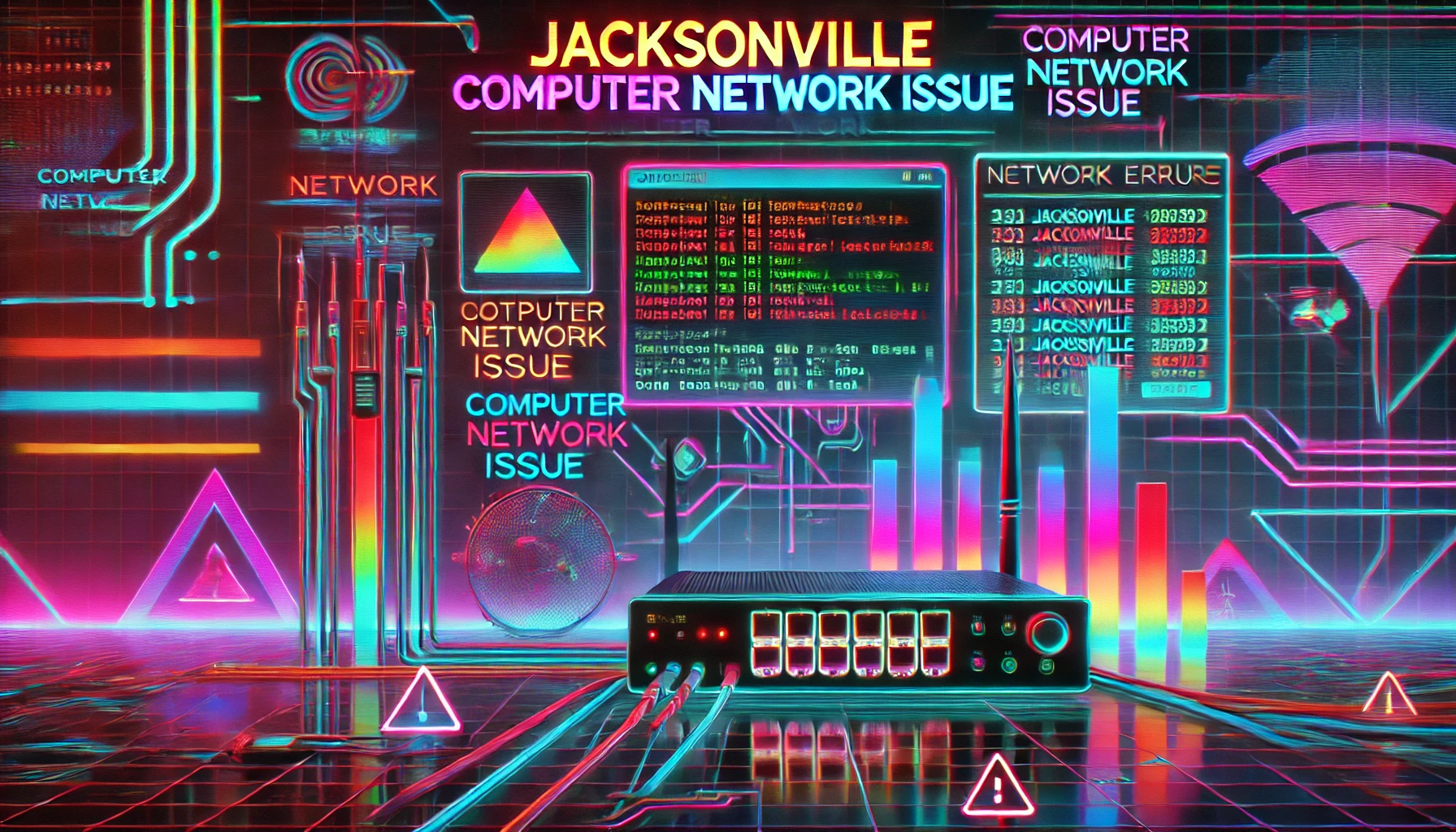Introduction
Jacksonville computer network issue are a common frustration for both businesses and individuals. Slow internet, frequent disconnections, and security vulnerabilities can impact productivity and daily tasks. Understanding the causes and implementing quick solutions can help restore network stability and efficiency. This guide outlines practical steps to troubleshoot and fix common computer network problems in Jacksonville.
Understanding the Importance of a Stable Network
A reliable computer network is essential for smooth communication, efficient workflow, and secure online activities. Whether you run a business that relies on cloud applications or work from home with video conferencing tools, having an uninterrupted connection is vital. Addressing network problems proactively can prevent downtime, security risks, and financial losses.
Common Jacksonville Computer Network Issue and Fixes
1. Slow Internet Speeds
Possible Causes:
- High network congestion during peak hours
- Outdated router or modem
- Weak Wi-Fi signal
- Background applications consuming bandwidth
- Poor ISP performance
How to Fix:
- To restore the connection, restart your router and modem.
- Check with your Internet Service Provider (ISP) for outages or speed upgrades.
- Use an Ethernet cable instead of Wi-Fi for a more stable connection.
- Reduce bandwidth-heavy activities like streaming and large downloads during peak hours.
- Adjust your router’s Quality of Service (QoS) settings to prioritize critical applications like video calls and work-related tasks.
2. Jacksonville Computer Network Issue in Wi-Fi Connectivity
Possible Causes:
- Interference from other devices or structures
- Router placed in a poor location
- Outdated router firmware
- Too many connected devices slowing down the network
How to Fix:
- In your house or place of business, move the router to a central, high location.
- Keep the router away from other electronic devices, walls, and big metal items.
- For best results, update the firmware on your router on a regular basis.
- Consider upgrading to a dual-band or mesh Wi-Fi system for better coverage.
- Limit the number of connected devices by disconnecting unused ones.
3. Network Security Threats
Possible Causes:
- Weak passwords and unsecured connections
- Outdated software or firmware
- Unauthorized devices accessing the network
- Malware or phishing attacks
How to Fix:
- Use a strong, unique password for your Wi-Fi network.
- Enable WPA3 encryption for better security.
- Install security fixes and upgrade the firmware on your router on a regular basis.
- Use a firewall and antivirus software to protect against cyber threats.
- Set up a separate guest network for visitors to prevent access to critical devices.
4. IP Address Conflicts
Possible Causes:
- The same IP address is assigned to several devices.
- DHCP server configuration errors
- Conflicts between static and dynamic IP addresses
How to Fix:
- Restart your router to refresh IP assignments.
- Set static IP addresses for critical devices like printers and servers.
- Ensure your DHCP settings are correctly configured to prevent duplicate IP addresses.
- Use command prompts like ipconfig /release and ipconfig /renew on Windows to reset IP configurations.
5. VPN and Remote Access Issues
Possible Causes:
- Incorrect VPN settings
- Firewall blocking VPN connections
- ISP restrictions on VPN usage
- VPN software conflicts with other applications
How to Fix:
- Double-check your VPN configuration settings.
- Allow VPN traffic through your router’s firewall settings.
- Switch to a different VPN server or provider if necessary.
- Get the most recent version of your VPN client software.
- Use split tunneling to allow selective traffic through the VPN while maintaining fast local connections.
Advanced Troubleshooting Techniques
If basic fixes do not resolve the issue, try the following:
- Check your ISP’s performance: Use tools like Speedtest.net to check if you are getting the promised speed from your provider.
- Reset your router to factory settings: If persistent issues arise, a reset may help. Keep in mind that custom settings will be lost.
- Check for local outages: Visit your ISP’s website or contact customer support to confirm if a larger issue is affecting your area.
- Monitor network activity: Use network monitoring tools to detect unusual traffic that may indicate a security breach or a device consuming excessive bandwidth.

When to Contact a Professional IT Service
If basic troubleshooting doesn’t resolve your network issues, consider reaching out to a Jacksonville-based IT service provider. Experts can diagnose advanced problems, enhance security, and optimize your network for better performance. Here’s when you should seek professional help:
- Frequent disconnections despite troubleshooting efforts
- Persistent slow speeds with no improvement after ISP upgrades
- Repeated security breaches or unauthorized network access
- Complex business networking needs such as VPN setups or cloud integration
Conclusion
Jacksonville computer network issue can disrupt work and daily activities, but most problems have quick solutions. Restarting devices, updating software, improving router placement, and securing your network can prevent and resolve many common issues. If you continue to face difficulties, professional IT support can help ensure long-term network reliability and security. Staying proactive with maintenance and security measures will keep your network running smoothly and efficiently.
FAQs
1. How can I boost my Wi-Fi signal in Jacksonville?
Move your router to an open, central location and consider using a Wi-Fi extender or mesh system.
2. Why is my internet slow even after restarting my router?
You may need to upgrade your internet plan, check for ISP outages, or reduce the number of connected devices.
3. How do I know if my network is secure?
Enable WPA3 encryption, use strong passwords, and regularly update your router’s firmware.
4. Should I upgrade my router for better performance?
If your router is more than five years old, upgrading to a newer model can improve speed, security, and connectivity.
5. How can I best keep an eye on the performance of my network?
Use network monitoring software to track usage, detect slowdowns, and identify unauthorized devices.
By following these steps, Jacksonville residents and businesses can maintain a stable and secure network, minimizing downtime and maximizing efficiency.
















